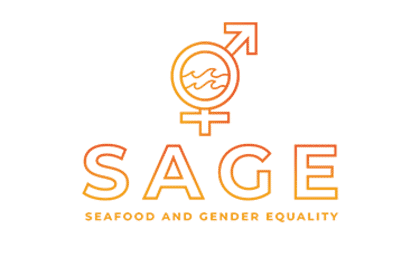
Called SAGE (seafood and gender equality), the non-profit aims to “build a more inclusive seafood industry and collaborate with existing efforts to address a critical lack of gender equality and build women’s empowerment in the seafood sector”.
It plans to achieve this by working closely with the seafood industry and NGOs in the sustainable seafood movement, "addressing systemic barriers to gender equality in both fisheries and aquaculture".
SAGE’s founder Julie Kuchepatov, former director of seafood at Fair Trade USA and founding member of Ocean Outcomes says: “The seafood industry has done a lot to advance environmental sustainability and social responsibility to date, but if we hope to accelerate and scale the successes that have been achieved so far, we must evolve solutions that are inclusive and gender equal.”
“SAGE is such a timely initiative because the industry is being forced to reimagine itself due to the challenges around Covid-19, such as new distribution models and disruptions in global seafood production. The time to include diverse voices in decisions about the future of the industry is now.”
To date, most work to ensure seafood sustainability at origin has been environmentally focused and social responsibility considerations are addressed more and more. Even so, women’s essential contribution to the industry is largely overlooked. SAGE is committed to achieving gender equality by 2030 in at least 75 percent of the seafood industry and global seafood production, ultimately leading to an increased volume of sustainable seafood – a critical source of protein for the Earth’s growing population, expected to reach 10 billion by 2050.
Dr Darian McBain, global director of corporate affairs and sustainability at Thai Union, is supporting the initiative’s goals.
“I applaud SAGE for bringing a dedicated focus to this work within the industry. I support these efforts to amplify the voices of women working in the sector, who are often left out of the design and implementation of sustainability efforts regardless of where they are found in the supply chain,” she says.
Peter Handy, CEO of Bristol Seafood, echoes this sentiment, saying: “Bristol Seafood has been committed to social responsibility within our company and in our sourcing practices since the beginning. Gender positive policies are an integral part of social responsibility and an area worthy of our industry’s attention. We are excited to support SAGE as it works to empower more women in the sector and build pathways for emerging women leaders to contribute to the responsible growth of sustainable seafood production and an inclusive industry.”
SAGE is a project under the fiscal sponsorship of Coastal Quest, a 501c3 non-profit based in California, with a mission to build resilient coastal communities.
Dr Tegan Hoffmann, executive director of Coastal Quest, notes: “We are thrilled to participate in the launch of SAGE and provide critical support to further SAGE’s mission, which is complementary to our own. Participation of women in decision making about natural resources is critical to building resilience in coastal communities, so the missions of SAGE and Coastal Quest are mutually reinforcing. We look forward to a prosperous future of supporting each other in these critical efforts.”
